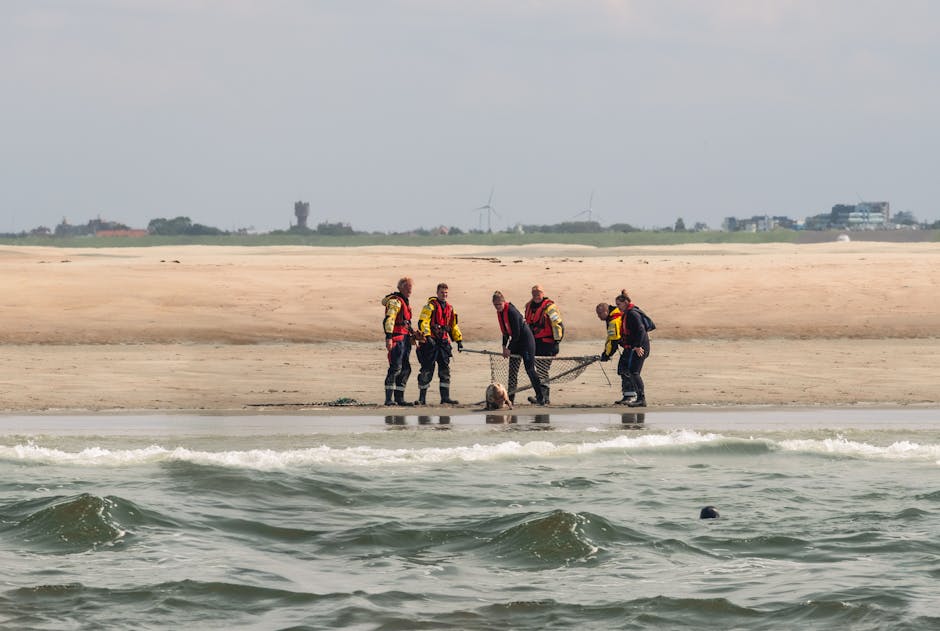SEAL Team 6 and the Killing of Osama bin Laden: Operation Neptune Spear and its Legacy
SEAL Team 6 and the Killing of Osama bin Laden: Operation Neptune Spear and its Legacy
The name “SEAL Team 6” evokes images of elite warriors, clandestine operations, and high-stakes missions. Nowhere is this more apparent than in the team’s involvement in the raid that killed Osama bin Laden, the mastermind behind the 9/11 terrorist attacks. Operation Neptune Spear, carried out on May 1, 2011, remains a pivotal moment in modern military history, a testament to the skill, training, and dedication of the Navy SEALs involved. This article delves deep into the operation, exploring the planning, execution, and lasting impact of this momentous event.
The Genesis of SEAL Team 6: A History of Excellence
Understanding the raid on Abbottabad requires understanding the unit that carried it out. Officially known as DEVGRU (Development Group), SEAL Team Six is not a single team, but rather a collection of highly trained special operations forces. Its origins trace back to the creation of the Naval Special Warfare Development Group in 1980. Its secretive nature and history have shrouded it in mystery, fueling public fascination and countless speculations. The unit’s reputation for precision and lethality is built on years of rigorous training and countless successful missions across the globe, making them the natural choice for such a high-stakes operation.

The training regimen for SEAL Team 6 is legendary, notorious for its brutality and selectivity. Only the most physically and mentally resilient candidates survive the grueling process, which includes intense physical conditioning, weapons training, advanced tactical skills, and psychological evaluations designed to test their limits. This demanding selection process ensures that only the best of the best make it to the ranks of DEVGRU.
Planning Operation Neptune Spear: A Complex Undertaking
The planning for Operation Neptune Spear was a monumental undertaking, involving months of meticulous intelligence gathering, risk assessment, and logistical coordination. Intelligence agencies worldwide painstakingly pieced together clues, eventually pinpointing bin Laden’s compound in Abbottabad, Pakistan. The location, surprisingly close to a Pakistani military academy, presented a complex challenge, requiring careful consideration of the potential risks and consequences.

The operation required a delicate balance between maintaining secrecy and ensuring success. The team faced considerable challenges, including navigating the complex political landscape of Pakistan, minimizing the risk of civilian casualties, and dealing with the unpredictability of the situation on the ground. The planning process was characterized by extensive simulations, contingency planning, and constant reassessment of the risks involved. Every detail, from the flight path of the helicopters to the entry and extraction points, was painstakingly analyzed and refined.
The Execution of Operation Neptune Spear: A Night of High Tension
On the night of May 1, 2011, a small team of highly trained Navy SEALs, under the cover of darkness, embarked on their daring mission. The journey involved a risky flight over hostile territory, navigating complex terrain and potential threats. The approach to the compound was executed with precision and stealth, minimizing the risk of detection. The team swiftly moved to neutralize bin Laden and his security detail, minimizing collateral damage.
The raid itself was a tightly choreographed operation, lasting mere minutes but fraught with extreme tension. The SEALs encountered resistance, but their superior training and coordination allowed them to quickly overcome the opposition. Bin Laden was killed during the operation, confirming a monumental victory in the global war on terror.
The Aftermath and Legacy of Operation Neptune Spear
The successful conclusion of Operation Neptune Spear sent shockwaves across the world, representing a significant turning point in the global fight against terrorism. The operation proved the capabilities of SEAL Team Six and the effectiveness of targeted operations in eliminating high-value targets. However, the operation also sparked debate and controversy, particularly regarding the handling of the raid within Pakistan and the potential risks to civilian lives.
Despite the controversies, Operation Neptune Spear remains a testament to the exceptional skills and unwavering dedication of SEAL Team 6. The mission highlighted the importance of intelligence gathering, meticulous planning, and the bravery of the individuals who risk their lives to protect national security. The raid serves as a powerful reminder of the commitment required to combat terrorism and protect the interests of the nation. The operational lessons learned have undoubtedly shaped subsequent anti-terrorism strategies and tactics. The meticulous planning and execution of the mission are still studied in military academies worldwide.

The Ethical Considerations and Controversies
While Operation Neptune Spear is celebrated as a victory, it also raised several ethical and legal questions. The raid took place in Pakistani territory without the explicit consent of the government, raising concerns about sovereignty and international law. Questions about the use of force, the handling of potential collateral damage, and the transparency surrounding the operation continue to be debated. The absence of a public trial for bin Laden also ignited discussion about due process and international justice.
These controversies underscore the complex ethical dilemmas inherent in counter-terrorism operations. Balancing national security needs with the principles of international law and respect for human rights is a continuous challenge that requires careful consideration and robust debate. This complex interplay of factors highlights the multifaceted nature of such operations and the enduring importance of ethical reflection in the pursuit of national security.
The Continued Relevance of SEAL Team 6
SEAL Team 6 continues to play a critical role in U.S. national security. While the unit remains shrouded in secrecy, its involvement in various high-stakes missions around the globe underscores its ongoing importance. The unit’s expertise in counter-terrorism, hostage rescue, and unconventional warfare ensures its continued relevance in a complex and ever-changing geopolitical landscape.
The legacy of Operation Neptune Spear extends beyond the successful elimination of Osama bin Laden. The operation serves as a powerful symbol of American resolve and the capabilities of its elite forces. It also represents a pivotal moment in the war on terror, showcasing the importance of precise intelligence, careful planning, and courageous execution in the face of extreme danger. The skills and dedication of the SEALs involved are a testament to the extraordinary sacrifices made in the pursuit of national security.
- Intelligence Gathering: The success of the operation hinges on years of meticulous intelligence work.
- Planning and Execution: The raid was a masterpiece of military planning and flawless execution under extreme pressure.
- Training and Preparation: The exceptional training and preparation of SEAL Team 6 were crucial factors in the mission’s success.
- Political Ramifications: The raid’s impact on U.S.-Pakistan relations has had long-lasting consequences.
- Ethical Considerations: The operation raised important ethical and legal questions about the use of force in foreign territory.
In conclusion, the story of SEAL Team 6 and the killing of Osama bin Laden is a complex and multifaceted narrative that continues to shape discussions about national security, counter-terrorism, and the use of force in the 21st century. The legacy of Operation Neptune Spear will undoubtedly remain a significant chapter in the history of modern warfare.




